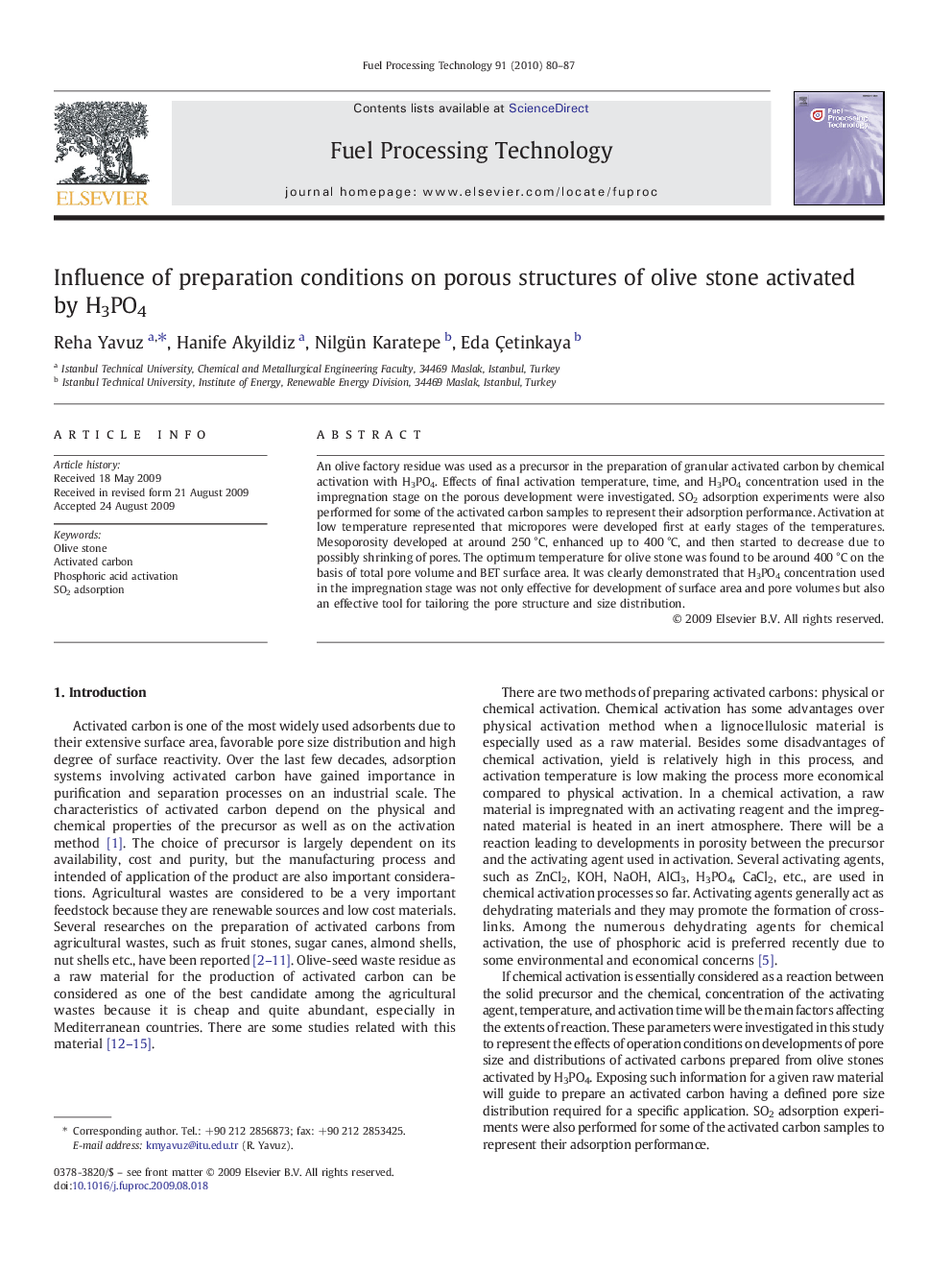| Article ID | Journal | Published Year | Pages | File Type |
|---|---|---|---|---|
| 211203 | Fuel Processing Technology | 2010 | 8 Pages |
An olive factory residue was used as a precursor in the preparation of granular activated carbon by chemical activation with H3PO4. Effects of final activation temperature, time, and H3PO4 concentration used in the impregnation stage on the porous development were investigated. SO2 adsorption experiments were also performed for some of the activated carbon samples to represent their adsorption performance. Activation at low temperature represented that micropores were developed first at early stages of the temperatures. Mesoporosity developed at around 250 °C, enhanced up to 400 °C, and then started to decrease due to possibly shrinking of pores. The optimum temperature for olive stone was found to be around 400 °C on the basis of total pore volume and BET surface area. It was clearly demonstrated that H3PO4 concentration used in the impregnation stage was not only effective for development of surface area and pore volumes but also an effective tool for tailoring the pore structure and size distribution.
